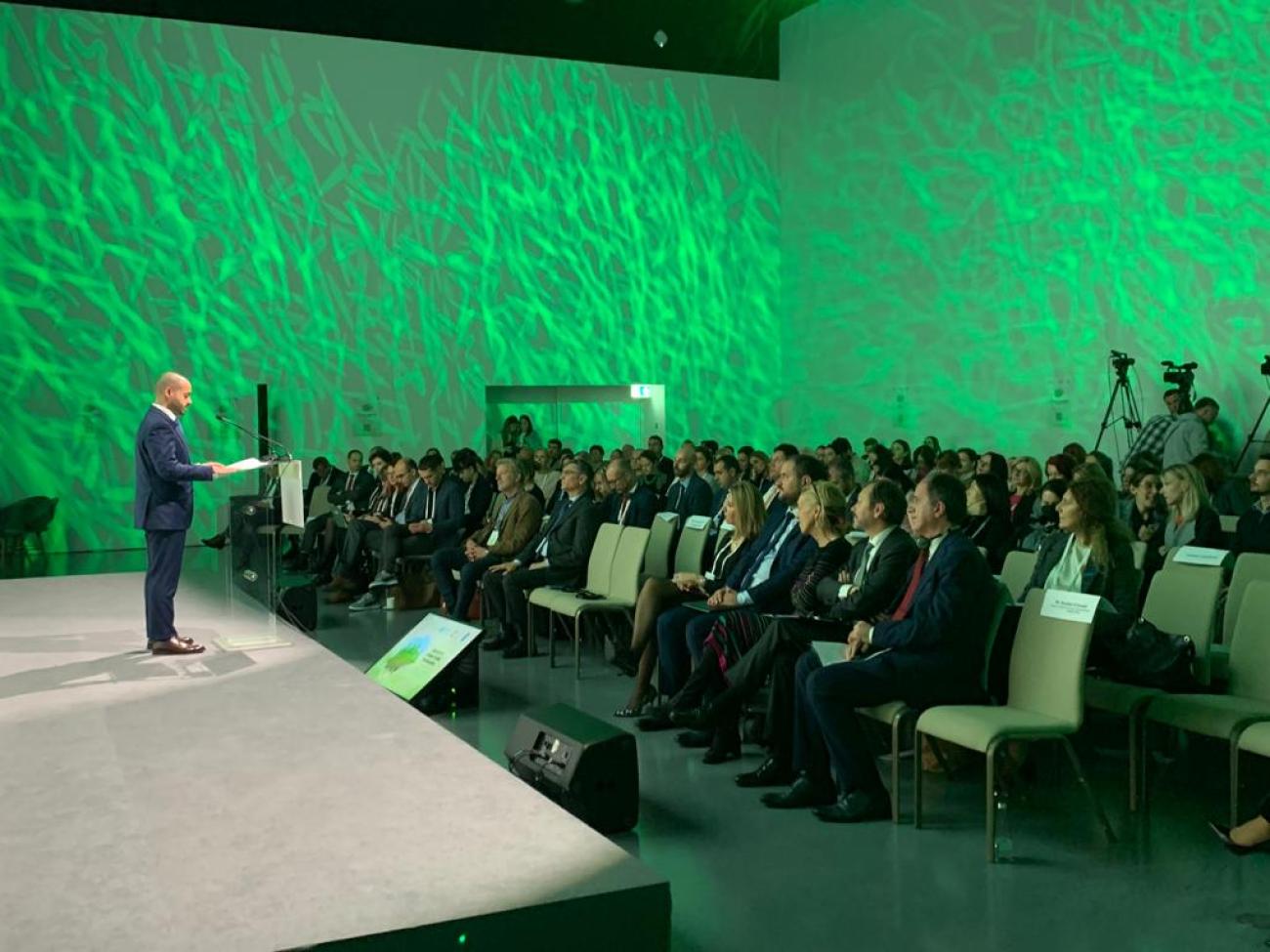Serbia Strengthens Resilience to Climate Change Through Adaptation and "Green" Innovations

Adaptation and "green" innovations increase Serbia's resilience to climate change
Belgrade, November 24, 2023 – To engage all relevant actors in society in activities that will reduce the economy's dependence on fossil fuels and help Serbia to timely increase its resilience to changed climate conditions, the Ministry of Environmental Protection held a "Dialogue on Climate Change". The event was organized in partnership with the United Nations (UN) team in Serbia and the United Nations Development Programme (UNDP), ahead of this year's UN global conference on climate change - COP28, in the United Arab Emirates.
Representatives of competent ministries in the Government of the Republic of Serbia, experts in the field of climate change, representatives of the European Union (EU), international financial institutions, business, civil society, as well as UN agencies in Serbia participated in the dialogue.
Sandra Dokić, the State Secretary of the Ministry of Environmental Protection, stated that since the year 2000, material damages caused by the extreme weather events in Serbia have been estimated at a minimum of 6.8 billion euros, of which droughts and high temperatures are responsible for more than 70% of damages, followed by floods. She emphasised that the main goal of the Government of the Republic of Serbia is to create an environment that will encourage innovation and accelerate the green transformation of the economy.
"The Ministry of Environmental Protection, in accordance with the provisions of the Law on Climate Change, developed the Programme of Adaptation to Climate Change for the period 2023–2030 with the Action Plan, which will be the first document of its kind in the Republic of Serbia. The goal of this Programme is to identify the impact of climate change on the most vulnerable sectors, define measures that will reduce those impacts, and improve capacities for informing the public about climate hazards in order to increase preparedness. Also, 25 adaptation measures have been identified as most urgent in order to prevent a multiple increase in damages and losses due to the impact of climate change," said Dokić.
The special focus of the dialogue was on the adaptation of the agriculture, water management and forestry sectors to climate change. State Secretary Bojan Vranjković said that the Ministry of Agriculture, Forestry, and Water Management is implementing many activities aimed at building resilience to climate change, primarily in food production.
"Activities include increasing irrigated areas, improving land and forest management, preparing and implementing IPARD Measure 4 related to the implementation of agri-environment measures, wastewater treatment, continuous harmonisation of regulations, and the introduction of subsidies that contribute the most to the adaptation to climate change," said Vranjković.
It was also discussed how to provide stable sources of financing for private and public sector initiatives that can accelerate the transition from fossil fuels to renewable energy sources, i.e., from a linear to a circular economy, so that Serbian companies can be more competitive on the European Union market and globally.
“We’re in the starting blocks for the COP 28 conference to keep the world’s temperature well below 2°C. The EU is doing its homework and will deliver on its 2030 target to reduce its net greenhouse gas emissions by at least 55% by 2030 compared to 1990 levels. Climate action is a global effort. In Serbia, the EU continues to support the Green Agenda for the country to start climate action and decarbonise its economy,” stated H.E. Emanuele Giaufret, Ambassador and Head of the Delegation of European Union to the Republic of Serbia
The dialogue took place ahead of the 28th Conference of the Parties to the UN Framework Convention on Climate Change - COP 28, which will be held from November 30 to December 12 in Dubai, United Arab Emirates. Delegations from 198 countries are expected to participate in COP 28. For the first time, a progress report will be presented on national plans to reduce greenhouse gas (GHG) emissions, in order to limit global temperature rise to 1.5°C.
"Climate action and sustainable development are interconnected and Serbia has made crucial strides in aligning national priorities with the global agenda. As we progress in our energy transition, it's imperative to ensure a fair shift that paves the way for new economic opportunities, particularly in regions traditionally dependent on fossil fuels. Approval of a National Program on adapting to climate conditions is pivotal to continue on this path. We acknowledge the challenges but are inspired by the positive steps ahead. The fight against climate change requires collective efforts from all economic sectors and Serbia continues to be a key player in shaping this global commitment," said Francoise Jacob, UN Resident Coordinator in Serbia.
The dialogue on climate change was accompanied by an exhibition of over 60 innovations from Serbia that represent concrete, practical solutions for the transition to a circular economy, increasing energy efficiency, switching to renewable energy sources, improving air quality and the environment, as well as reducing energy poverty.
The event was held with the support of projects implemented by UNDP in cooperation with the Government of the Republic of Serbia, with the support of partners such as the Delegation of the European Union to Serbia, the governments of Switzerland, Sweden and Japan, the Green Climate Fund (GCF) and the Global Environment Facility (GEF).








